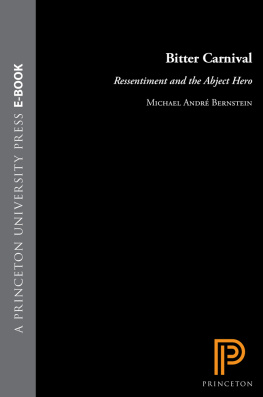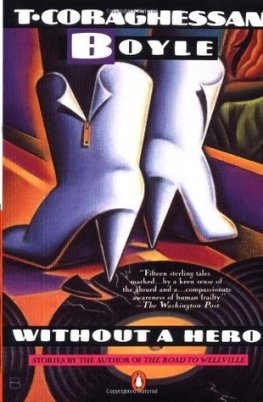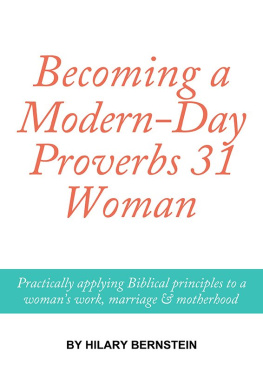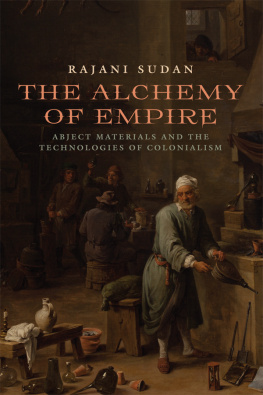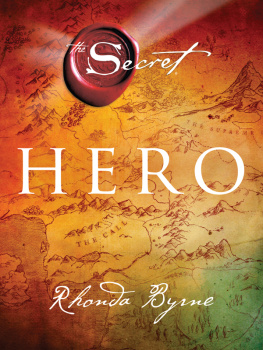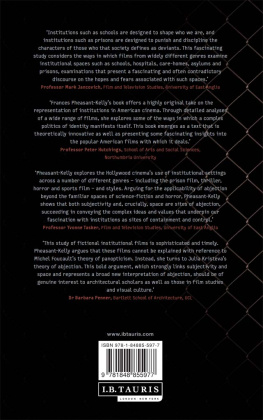BITTER CARNIVAL
BITTER CARNIVAL
RESSENTIMENT
AND THE ABJECT HERO
Michael Andr Bernstein
PRINCETON UNIVERSITYPRESS PRINCETON, NEW JERSEY
Copyright1992 by Princeton University Press
Published by Princeton University Press, 41 William Street,
Princeton, New Jersey 08540
In the United Kingdom: Princeton University Press, Oxford
All Rights Reserved
Bernstein, Michael Andr, 1947
Bitter Carnival : ressentiment and the abject
hero Michael Andr Bernstein.
p. cm.
Includes index.
ISBN 0-691-06939-5
1. Abjection in literature. 2. Heroes in literature. 3. Cynicism
in literature. 4. LiteratureHistory and criticism.
I. Title. II. Title: Ressentiment and the abject hero.
PN56.A23B4 1992
809.93353dc20 91-25871 CIP
eISBN: 978-1-400-82063-4
R0
for
ANNA-NORA BERNSTEIN
and
MOSES ELCH BRUGGER
nothing matters but the quality of the affection
Acknowledgments
SINCE I began work on this book, I have benefited from the intelligence, time, and generous advice of a circle of close friends and colleagues. To be able to articulate at least a portion of my gratitude to them here is one of the major pleasures of completing the work. Two of these in particular, Alex Zwerdling and Gary Saul Morson, participated in the shaping and reshaping of the entire text, offering encouragement, close scrutiny and exacting criticism with a commitment of time and lucidity that I hope will seem justified by the pages that follow. I was saved from a great many errors and alerted to many fresh possibilities by the instigations of Jeffrey Akeley, Robert Alter, John A. DeWitt, Caryl Emerson, R. Scott Hamilton, Robert Hollander, Leo Lowenthal, Thomas G. Rosenmeyer, the late Jean Seznec, Richard Sieburth, Katharine Streip, and Robert Yarber. The staff at Princeton University Press, especially Beth Gianfagna, production editor; Victoria Wilson-Schwartz, my copy editor; and Robert Brown, literature editor, have my gratitude for their detailed and constructive suggestions. Most important, my wife, Jeanne Wolff Bernstein, helped me in ways that the rhetoric of an acknowledgment could never register.
I want to thank the American Council of Learned Societies, the Koret Foundation, the Committee on Research of the University of California, Berkeley, and the Departments of English and Comparative Literature at the University of California, Berkeley, for granting me the time and the funds to work on this study.
In very different versions, sections of was published in the volume Rethinking Bakhtin: Extensions and Challenges, edited by Gary Saul Morson and Caryl Emerson (Evanston: Northwestern University Press, 1989). I am gratefulto all the editors involved, both for their valuable suggestions and for permission to reprint portions of these essays here.
For his generous permission to use the painting Un moment hors du temps, on the cover of the book, I would like to thank the artist, Grard Lapagesse. I am very grateful as well for the cooperative support of his gallerist in Paris, Jacques Adolphe Martin, at the Galerie Nafs du Monde Entier.
BITTER CARNIVAL
Introduction
Murder and the Utopian Moment
youll never know what obsessive hatred really
smells like [... ] Thats the hatred that kills you.
[... ] it will ooze out over the earth... and
poison it, so nothing will grow but viciousness, among the dead, among men.
(Louis-Ferdinand Cline, Mort crdit)
Death is psychosomatic.
(Charles Manson, Year of the Fork, Night of the Hunter)
IN JULY 1979, on my way to visit my family in Toronto, I stopped for a few days in New York. On one of those evenings, at a friends apartment, I wanted to see who was playing in some of the clubs I used to visit when I still lived on the East Coast. My friend passed me a copy of that weeks Village Voice, and I can still remember idly flipping through it before turning back for a moment to glance at the cover. Then I felt the room turn suddenly quiet, and something that must have been nausea but seemed utterly unfamiliar constricted my world to a kind of dispersed aching. The headline read: Blinded by the Light: The Einhorn-Maddux Murder Case. The beginning of the article was framed on the left by a photo of a heavy-set, bearded man called Ira Einhorn above the caption Philadelphias favorite hippie son, sought cosmic consciousness and ingenuous child women he could mold, and on the right by a picture of a young woman, Holly Maddux, who was described as shy and self-doubting, sought a guru. She found him in Einhorn, who today stands charged with her murder. Although I could not recognize her at first from the harsh, over-exposed newspaper imagea detail that in itself disturbed meI immediately realized that the victim was the same woman I had known a decade earlier when she was a student at Bryn Mawr College. Even though we had several friends in common, Holly and I were never especially intimate and had lost touch altogether after she temporarily withdrew from the university. So it was not the news of her death alone that shocked me, nor even learning about it so accidentally and publicly. It was the story of her being bludgeoned to death and hidden in a steamer trunk for almost eighteen months, the brute fact of the murder, that continued to haunt me for a long time.
The details of the killing were unnervingly weird, even for an era and a milieu in which the weird was commonplace. But what gave the story the kind of exemplary significance that prompted the Village Voice to devote much of an entire issue to it, and that, a decade later, would lead an investigative journalist to publish a luridly detailed book about the case (The Unicorns Secret: Murder in the Age of Aquarius), was Ira Einhorns status as a prankster-theoretician, organizer, and hero of Philadelphias radical and hippie communities. It was Einhorn the murderer, not Holly Maddux his victim, who made the event newsworthy, and after an initial revulsion at the disparity of concern, I, too, began to let myself follow the vicissitudes of Einhorns bizarre career. What obviously most impressed the reporters was Einhorns success in bridging supposedly irreconcilable constituencies. His advice was sought by the counter-culture of Philadelphias hippie enclave, Powelton Village, and by Robert De Witt, the dioceses Episcopal Bishop, who temporarily put Einhorn on his payroll; by the citys underground press and by William S. Cashel, the President of Pennsylvania Bell, who scheduled regular meetings with Einhorn in order to stay better informed about significant social issues; by the advocates of an alternative university and by the administrators and students of Harvards Kennedy School of Government, where Einhorn had been appointed a Fellow for the fall semester just before the discovery of Holly Madduxs body in the locked closet of an enclosed porch overlooking his backyard.
Before his dramatic arrest, Ira Einhorn had placed himself at the center of several highly charged local festivals, including, in April 1967, Philadelphias first Be-In, and, three years later, always alert to changing slogans and rallying-cries, the April 1970 nationally televised Earth Day in Fairmount Park. Even today, the photographs of those occasions show how immensely popular such celebrations were, ceremonies that in their licensed freedom and joyous suspension of all restraints resembled nothing so much as a contemporary Saturnalia, a re-creation in the modern city parks of the carnivalesque market squares of medieval and Renaissance Europe. The central impulse of a Be-In was to mark out a utopian space in which to practice the rites of the coming permanent revolution, rites in which there would be no more distinction between participants and spectators since all roles would be interchangeable and neither script nor director would be necessary. The exuberant revelers massed together to jettison the repressive demands of a society based on hierarchies of value and acts of ordering. In their eyes, the instinctual renunciations exacted by the too well-regulated lives of their parents and teachers served only to nourish a culture of anxiety and frustrated denial. Morse Peckham, who had been Einhorns professor, as well as friend and mentor, at the University of Pennsylvania, had coined the phrase mans rage for chaos, to celebrate the power of artistic perception... to weaken and frustrate the tyrannous drive to order, and, for a brief time, the promise of an entirely beneficent chaos seemed to be in the process of realization. But like the traditional carnival, that eras Saturnalia also had its dark side, its current of anarchic violence and disdain for constraints of any kind, including ultimately, among its sociopathic visionaries like Ira Einhorn, the prohibition against murder.

